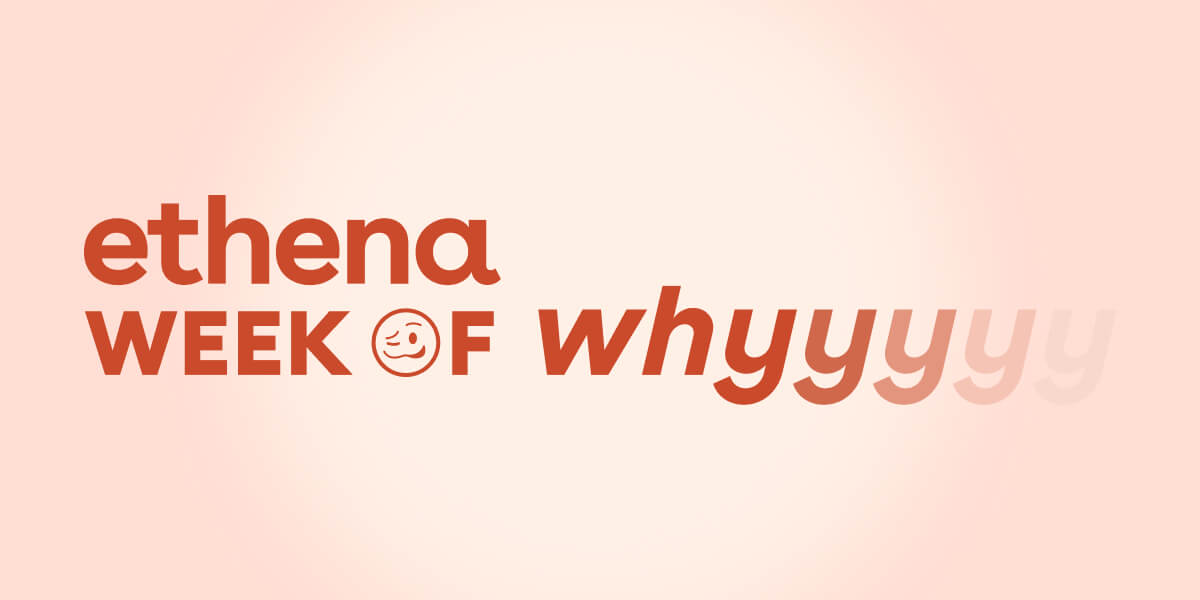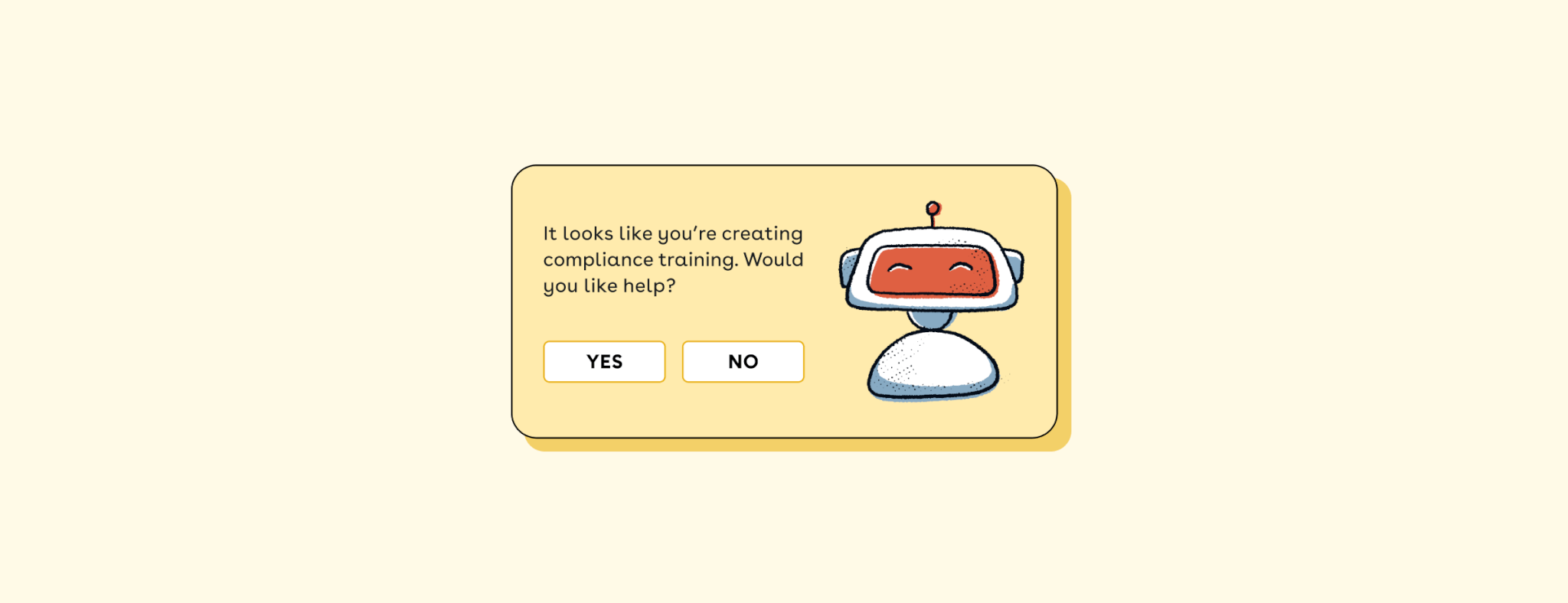We've made it to the end of Week of Whyyyyy, our a question-a-day about year-end burnout as people/HR professionals! We really enjoyed diving in on these tricky topics, and we hope you've found something useful to implement in your own journey with burnout.
We asked you all what questions are on your mind as you're thinking about the end of the year and the burnout that comes from it – and you delivered so many great nuanced questions! We've answered them below, including a few more resources we couldn't help but share.

I’m an HR team of one! Where can I find resources for things like communication plans, management enablement, employee engagement, and development strategies?
Finding resources while running a department of one can look like connecting with your peers to see what they've done – we've dropped a ton of amazing resources down at the bottom of this blog post – and then developing those resources to work for you.
Not to toot our own horn, but we love sharing templates and resources, and our blog has a wealth of tools like our performance review template, employee user manual guide, and tips to coordinate an employee get-together your teams will actually enjoy. Plus, there’s a free management course to share directly with your managers for additional support on the gray areas of management (yup, we said free).

HR has a long history of being the team that can't say no to leaders or we might be perceived as unsupportive or not helpful. How do we get comfortable saying no when it’s necessary because there truly aren't enough resources to go around?
As difficult as it can be, saying no at work is an important skill to develop, especially if you’re part of a small team or experiencing burnout yourself. Taking on additional work will only weigh you down and add to the overwhelm you’re already experiencing.
Sometimes, the only answer to a request or a question is no. But saying it with empathy makes it easier to digest for both parties. Without offering lengthy explanations, you can say you don’t have the bandwidth now and offer an alternative or two – perhaps offering to help at a different time or suggesting another team member to take on the request if it’s urgent. Saying no isn’t about shutting down a coworker’s ask, rather look at it as an opportunity to redirect the ask.

How do I start prepping for 2024 without burning myself out EOY?
If you’re feeling overwhelmed by your to-do list, decide what must be done before you leave, and what just feels like it has to be done. Knowing what’s timely and what can be put on ice until 2024 will help you close your laptop feeling ready to disconnect.
Consider doing a priority matrix, breaking projects down into “Urgent” or “Not Urgent” and “Important” or “Not Important.” You can use our free Priority Matrix template to automate it: add your items to the task list, and they’ll populate where they belong in the matrix. Anything in the top left can be deemed as “Do Before Break”. Everything else? Put it on pause or delegate it.
Ask yourself "what one task in front of me will make me feel better?" … whether that's because it brings you joy or checks a satisfying chunk off of your to-do list. Either way, your mindset has shifted and you can ride the wave of momentum to tackle the rest of your list before signing off on a high note.

Any tips to help me convince my employer to close the office during the week between Christmas and New Year’s Day?
We've talked about how to speak CEO before – and while the request to close the office is tricky, try appealing to what CEOs care about most, business needs: Isn’t it cheaper to close the office for a week than to replace employees who are too burned out to work? It’ll encourage new talent to accept an offer if they see the business cares about dedicated rest. People who take time off are more productive than those who don't.
If they still don't get it, share this Inc. article, No, You Shouldn't Give Your Employees the Holiday Week Off – just make sure they know it's satire and don't take it seriously 🥴.

As a leader working remotely, what signs can I learn to recognize as to when my team members are not okay?
Low productivity, high count of sick days, meetings rife with silences and cameras being off: there are a lot of clues that can point to team members not being engaged or feeling the burn.
But one of the best ways is to make sure your managers are checking in with their reports. To enable that, provide your managers with the language and skills to have that kind of regular touchpoint. At Ethena, do weekly Feedback Friday 1:1 sessions, and provide useful EQ questions to our managers so they can gauge how their teams are doing on an individual basis. That, plus a clear communication with their HR leader gives your team members a way to ask for and receive help in resolving their own burnout.

What can I do when a lot of employees are unhappy with our CEO?
As the HR/People person on staff, you are the connection between employees and leadership, which puts you in the best position to try to affect change. In Melanie’s workshop, (controversially) titled “Your leadership might be the problem”, she broke it down like this: it’s our job to point out People challenges, but we have to be careful in our approach and make sure we’re keeping an eye on the big picture. Be transparent with leadership and be transparent with your teams to let them know you recognize that there’s a disconnect, and you’re working towards a solution.
Bonus tip: Melanie hosted another workshop on this popular topic which we recommend watching next, "The undervalued HRBP: How to get your leadership team to actually listen".

What can I do if my supervisor said they don't know what “burnout” means and I'm feeling burnt out?
Even if your supervisor doesn’t understand the phrase “burnout,” they probably understand what it feels like, and that will probably make it easier to explain what you need. Exhausted or low energy, distance and disconnection to the work and coworkers, being less driven and less effective with tasks or projects, even potential health conditions – overall, feeling stressed to the point of breakdown.
Set boundaries around your availability
First, dedicate time for yourself by scheduling “no meeting days” and blocking off your calendar accordingly. Schedule specific office hours for when you’re available to answer questions, solve problems, and do your best People work.
Then, communicate these scheduled times with your teams and encourage them to do the same! Ethena has No Meeting Fridays every other week so the entire organization has time to focus and decompress from Zoom fatigue.
Look for tasks that you can outsource
Empower your team to function more autonomously. Encourage your managers, by providing additional training and support, to handle conflicts on their own by providing a clear path to resolve issues without bringing you in for every situation.
Automate what you can so you can step back from handling the minutia. Even if you don’t have an HRIS system in place, you can utilize tools like Google Forms to collect feedback, report incidents, and share other non-urgent communications. By clearly stating when you’re reviewing these submissions, you set expectations and can address these requests when you are ready.

Community-Building Resources
Slack channels: Perhaps not revolutionary, but it is convenient. Since many of us already spend our days on Slack, why not seek a community built into our daily lives.
- #People: Possibly the most famous, but we’d be remiss in not recommending this curated community – all of which made a “#people promise” to be a totally normal person.
- People Geeks: The Culture Amp-moderated Slack community onboards you with a cohort of peers all joining the same week as you, offering a chance for immediate connections!
- Resources for Humans: This Slack community, run by Lattice, is moderated by community Ambassadors committed to hosting monthly local events – which gives you access to in-person events regularly!
- Special mention: ChartHop hosts The People Ops Community in their own platform, with a peer-matching program and curated peer groups.
Podcasts: Switch from true crime to airtime with HR/People professionals discussing the most pressing issues happening right now. Here’s the three we have on repeat right now:
- HR Heretics: Nolan Church and Kelli Dragovich dive deep into the kind of leadership-level strategy that often happens behind closed doors. Full disclosure, our own VP of People Melanie Naranjo was on a recent episode that’s definitely worth checking out! On tap were topics from EQ and emotional maturity to performance issues and CEO partnerships.
- I Hate It Here, hosted by Hebba Youssef: An “unflinching” podcast version of the popular newsletter featuring open and honest discussions about one of the hardest jobs in the world – and how to make it a little easier. (Hebba stopped by our webinar recently to ask "Can I really say that...?")
- SHRM’s Honest HR: Forward thinking conversations and relatable stories, hosted by Amber Clayton, Wendy Fong, and Monique Akanbi. (Bonus: This podcast is approved to provide SHRM-CP/SCP recertification PDCs!)
LinkedIn Groups: Pretty sure these don’t need an explanation.
- Linked:HR – With 1.4M members, you’re likely already in this group. But if you’re not, there (probably) isn’t a bigger community in the world of HR/People professionals ready to answer questions and offer advice.
- Human Resources (HR) Professionals – A 700K strong group hosted by HR Dive, with a robust 10+ moderated posts a day about talent acquisition, management, DEIB, and more.
- HR Professionals | Powered by HRCI and HRPA – At 500K, another large membership of HR Professionals who post questions, share knowledge, and support each other through this thriving community.
Ethena-hosted Workshops and Peer-coaching Sessions:
We have regular interactive webinars, workshops, peer-coaching sessions that open the door for connection and building community. Our VP of People Melanie Naranjo hosted an interactive workshop, How to beat the morale slump at the end of a tough year, focusing on helping your teams to finish the year in high spirits, instead of out of steam. Check out the recording including a great Q&A session at the end!
Subscribe to our events emails if you want to join the next session!







